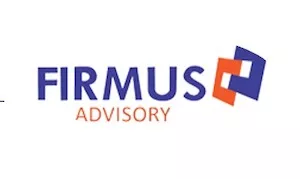All imported food products are required to be registered with NAFDAC in Nigeria. This is to ensure that food products are legally recognized and safe for consumption. Registering with NAFDAC improves your business's reputation as a responsible and compliant importer.
Here is a step-by-step guide to help you navigate through the registration of food products in Nigeria.
Procedure for Registration of Imported Food Products With NAFDAC
Step 1: Write an Application Letter addressed to the Director of Food Registration and Regulatory Affairs (FR&R) Directorate.
Step 2: Purchase, complete and print out the online Registration Form at NAFDAC Website. Some details to be included in the form include:
- Manufacturer Information such as Name of the Company, full location address of the factory, email address, and current phone no. & fax no, the name of contact person overseas, telephone no, email address. Name of airport closest to the location and guide map illustrating the shortest land/air route to the factory overseas (where applicable)
- Company's Tax Identification Number, where applicable
- Details of Applicant, such as name, contact, address, qualification, job title, warehouse address, etc.
- Number of products
- Details of the products
- Names of four 4 staffs including production manager, production staff, quality control and marketing director, where applicable.
Note that a separate registration form is to be filled for different cosmetic products.
Step 3: Attach the following documents:
- Notarized Declaration signed by a Notary Public in Nigeria.
- Power of Attorney (POA), if applying on behalf of a manufacturer outside Nigeria. The POA should be valid for at least 5 years and must be signed by a senior company official. It must also be notarized in the country of manufacture; state the authority to register the product with NAFDAC and indicate ownership of the brand name or trademark.
- A Contract Manufacturing Agreement (CMA), where the applicant is applying on behalf of his company. The CMA should be signed by the Manufacturer and the Applicant, and must be notarized in the country of manufacture. The CMA should also state the names of all the products to be registered in a clear language.
- A Certificate of Manufacture and Free sale. This Certificate should be obtained from the relevant health/regulatory body in the country of manufacture, showing that the company is licensed to produce the food product and that it complies with local laws. The Certificate must also be authenticated by the Nigerian Embassy or High Commission in the country of origin or any Commonwealth or ECOWAS country, where no Nigerian Embassy exists.
- A Certificate of Analysis. The Certificate of Analysis must be presented in the letterheaded paper of the Quality Control Laboratory where the product was tested.
- Certificate of Incorporation/Registration with the Corporate of Affairs Commission in Nigeria.
- Evidence of trademark registration with the Trademark Registry in the Ministry of Industry, Trade, and Investment in Nigeria.
- Label or Artwork of the Product (s)
- A letter of Invitation for Good Manufacturing Practice. Write a letter inviting NAFDAC to inspect the manufacturing facility abroad. The letter should include details about the manufacturer and the local agent in Nigeria, including their contact information.
Step 4: Submit All Documents
Submit the completed online application form and all accompanying documents to the Office of the Director, Food Registration & Regulatory Affairs Directorate at the NAFDAC office in Lagos or to the nearest NAFDAC office, if outside Lagos State.
Step 5: Obtain an Import Permit
Upon successful screening of the documentation and review of supporting documents, an Import Permit will be issued after which, the product(s) should be submitted for vetting of the labels.
Step 6: Submit the Product(s) for Laboratory Analysis
After successful vetting of the product labels, submit samples for laboratory analysis. Include evidence of payment to NAFDAC, the certificate of analysis, and proof that the samples are vetted.
Step 7: Submit the Products for Approval Meetings
If everything meets the Agency's standards, the product should be presented for approval at an Approval Meeting. If the product labels do not meet compliance requirements for labelling of imported products, the Applicant can submit a compliant artwork along with a commitment letter from the manufacturer stating that the commercial products will comply.
Step 8: A notification of registration or Listing is issued to the Applicant where the product is approved, while a compliance directive is issued where the product is not approved.
A successful applicant will also be given a Certificate of Registration with a validity period of 5 years.
To view the article in full click here.
The content of this article is intended to provide a general guide to the subject matter. Specialist advice should be sought about your specific circumstances.


